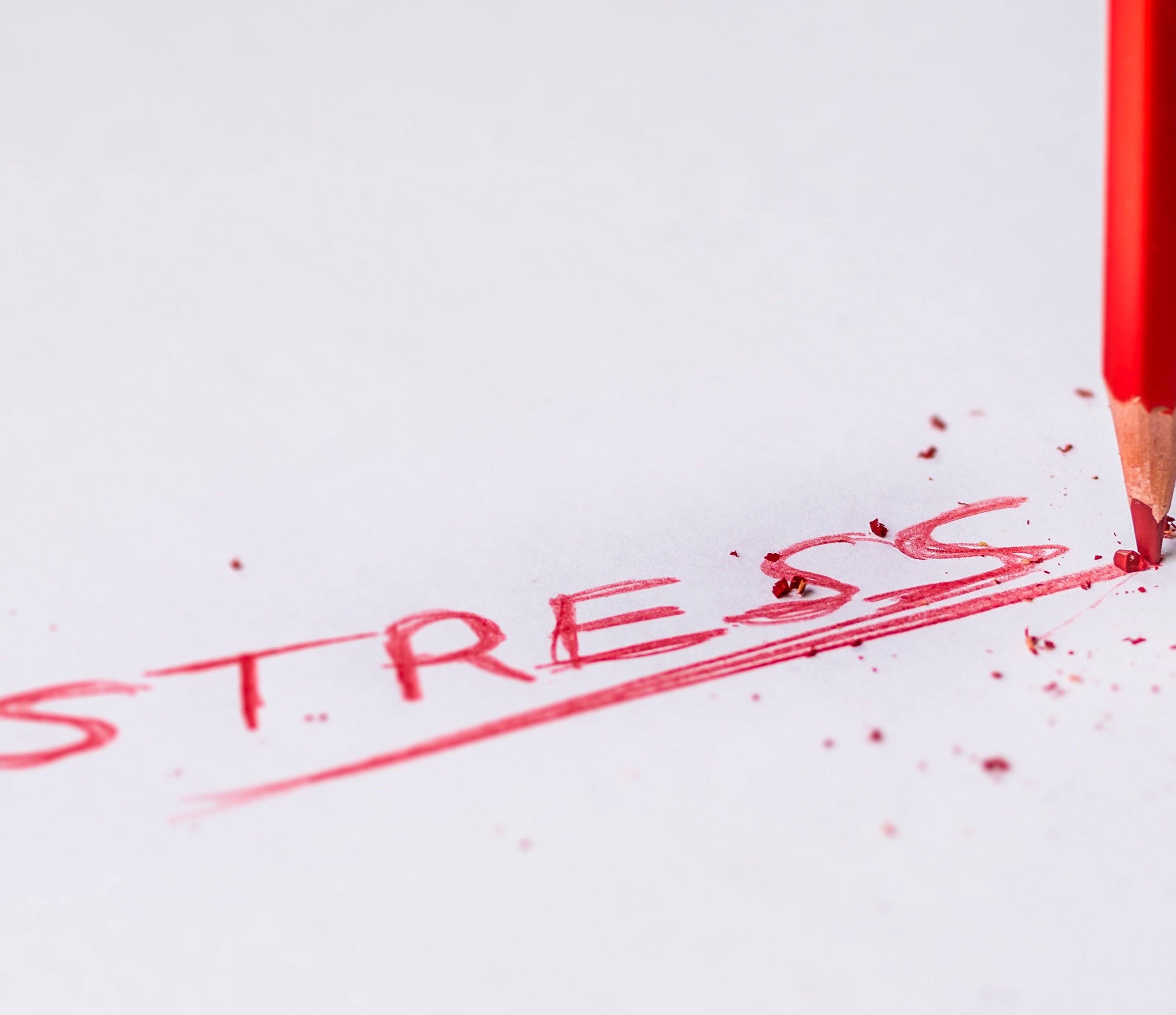Understanding Stress: Managing and Combating

WHAT IS STRESS?
Stress can be explained in terms of a physical and emotional reaction to some event. It is a response that is caused due to a specific good/bad situation or event in life. A change that can cause physical, emotional, and psychological strain is known as stress. It is a common part of a person’s life as we all have faced or been in situations that arouse stress within us. However, when stress interferes with the daily life of a person it can be considered unhealthy.
Can stress be positive? The good stress
Anything in a limited amount is said to be good for the body and the mind, and yes, we can count stress in that too. Stress, to a certain extent which benefits us to a level of attaining motivation and in turn success, is considered good stress- or eustress. A simple example of this could be the stress before an exam; if this kind of stress motivates one to study and achieve their goal of doing well in their exam, this can be called eustress. However, when it gets into the negative spectrum and is beyond positivity and control it can be harmful physically and mentally.
Types of stress – when stress gets bad!
acute stress disorder:
This kind of stress occurs immediately, as a negative reaction to a life experience such as a trauma or an overwhelming life event. This kind of stress occurs mostly for a time period of 1 month. If not treated or recognized, it can go on to become what is known as post-traumatic stress disorder (PTSD).
Chronic stress disorder:
This kind of stress is considered more negative and dangerous as it becomes a part and parcel of one’s life. Such stress is more long-lived and can arise from a number of reasons such as a grinding job or a troubled relationship. Trauma and negative life experiences can also be the cause of chronic stress disorder. There are chances of the person with this disorder to go on and develop anxiety disorders.
Episodic Acute Stress Disorder:
A person experiencing episodes of acute stress in their daily life has a chance of suffering from this type of stress. This kind of stress is often seen in people who usually have type A personality- which is marked by the person being a perfectionist, workaholic and someone who wants everything in place, personally and professionally. Such people usually end up doing things more than their capacity and hence are prone to experiencing this kind of stress.


Causes of stress:
Daily Hassles:
The demands that are put by the daily life of people, can be one of the major causes of stress. These include work-life balance, expenses, finances, and other needs that cannot be avoided due to the pressure put on people. Other factors such as crowding, population, and urban life living are issues that are inducing stress among people.
Personal Experiences:
The experiences that people face throughout life are endless and even though two people might experience the same event, their intensity and response/ reaction differ due to individual differences. Personal experiences can range from inability to take prolonged negative events, childhood trauma, divorce or relationship failures, inability to maintain work-life balance, loss of a loved one, and even abuse.
Personality:
The personality of an individual is said to influence situations and events from all walks of life. Individual differences in personality and the dominance of certain traits over the other make a person susceptible to stress-related issues. For example, an individual who values expertise and perfectionism and Is a workaholic, which is dominant to what we can label type A personality is prone to stress more than anyone. Also, people who are introverts and have traits of negative emotions known as neuroticism are also prone to stress.
Empathy:
Empathy means trying to understand the situation and feelings of the person from their point of view or being in another person’s shoes. Empathy is a basic quality that one providing emotional first aid should possess. It is a quality that some naturally have, however, others can imbibe. Trying to see the emotions and approach of the speaker from their own perspective will give your insight into how they view things. Empathy is not a step/guideline, but rather a part and parcel of everything you carry out while providing emotional aid.
DIY TO COMBATING STRESS – YOU CAN DO IT!

Encounter:
In order to validate your emotions, there should be an understanding that there is actually a problem, and it is not wrong to experience negative events in life. Encounter your issues and address them personally. This will help gain clarity for and make space for further action
Communicate:
It’s true when they say that communication is the key- talk to your loved ones, tell them how you feel. Once the problem has been understood and encountered, it becomes easy to communicate your thoughts. Communication also gives you a sense that there is external support which can be helpful.
Practice a healthy lifestyle:
Being healthy includes mental and emotional health. The life that most of us are leading can be very overwhelming, and certain unavoidable events can add on to the existing stress. Practising a healthy lifestyle includes not only eating healthy or sleeping on time, but also making space for your mind to breathe. Making time for your hobbies, spending time with positive people or just doing things that make you positive are some things that one can include in their life.
Mind Exercises:
This can be included in daily activities that can be carried out to reduce significant stress levels. Practising mindfulness-based exercises which include meditation and yoga can be helpful. Keeping in mind that not all of us can resort to meditation, another successful mind exercise can be going on a drive or even a long walk in fresh air which are simple methods to drive away stress.
Self-Reflective Activities:
One of the most used self-reflective methods is Journaling This activity not only helps in giving mental clarity but enhances flow of emotions and is an excellent self-reflective technique. There are many books that are specifically designed with the aim of combating stress using art-based colouring books. They are fun, cheap, require no guidance and have proven to be useful.
Positive Self-Talk:
Another important self-reflective technique can be positive self-talk which is a key element of positive thinking. Positive thinking can reduce stress and by self-talk one can understand what are the hidden factors in the situation causing it, analyze them, and come to manage stress arising from the same.
Consult a professional:
Yes, you heard it right, and it is nothing to be shameful about! When stress becomes beyond control and interferes with daily life, it is a sign that help is needed. Therapy techniques such as Cognitive Behavioural Therapy have proven to be useful in combating stress and training the mind to think right. Taking therapy is like feeding medicine to the mind. It is reliable, healthy, and a safety measure to resort to when stress gets out of control.
HELPING SOMEONE WITH STRESS – you can do it too!
Listen:
Active listening is one of the main components when you are helping someone. hear them out and try to understand what they think of the issue, their perspective, and intensity to respond to the issue. Listening will give you clarity on the speaker’s reason to be stressed.
Calm them down:
Have you ever been in a situation where a friend or a colleague is extremely worked up before an exam and does not really understand what to do? Well, you can help them and calm them down- speak some affirmative sentences (don’t worry, you’ll do great) or hand over some water to them and ask them to take a few sips.
Be a practical support:
Planning a movie together or going out for a feast can be some ways in which you can be an active participant in helping your loved ones “brush off” their stress. Take a yoga class together or if not, sit down with them and help them understand their triggers. Such activities can be very helpful for the person under stress.
Recommend Therapy
Sometimes, the reason why a person is hesitant to take therapy is that they feel they do not really need it. This happens due to their inability to recognize the intensity of the stress they are undergoing. Help them realize that no matter how small they think their problems are, therapy helps. Destigmatize their ideas and recommend counseling or therapy as it is a safe space for everyone’s problems.
*DISCLAIMER*
The following content is for information purposes only. We, in no way claim or assure that using the information can be a substitute for any kind of medical treatment if any. If you are diagnosed with any kind of medical/clinical condition please do not avoid visiting a professional.
ABOUT THE TENDER CURVE:
Our purpose is to spread positivity and motivation by focusing on self-love and self-care. We also work towards reducing the stigma around mental health and by creating mental health awareness through our blogs.
People today have forgotten how to be happy; they have forgotten what it is to be inspired what it to be real & motivated. We all are so busy with our daily lives today that we have forgotten to take time out for ourselves. We are here to remind you that you are special in your own ways. We are here to remind you that it’s okay to not finish a task, or meet deadlines, its ok not to be ok! You deserve to be happy, you deserve to smile, you deserve to be cared and loved.
Related Blog Posts
Understanding Mindfulness – Concepts & Tips
Mindfulness - The defining linesMindfulness can be described as the complete awareness that an individual has towards themselves. Mindfulness occurs when the person is fully aware of their surroundings, in terms of the 5 senses and of course their mind and emotions....
Understanding Motivation – The Chauffeur of Your Goals
What is Motivation?Motivation is the process that initiates and guides our goals. It is the motivation that is a driving factor for our desires. Motivation is what makes us “act” - be it eating our meal or reaching that ideal body that we have been working - this is...





0 Comments